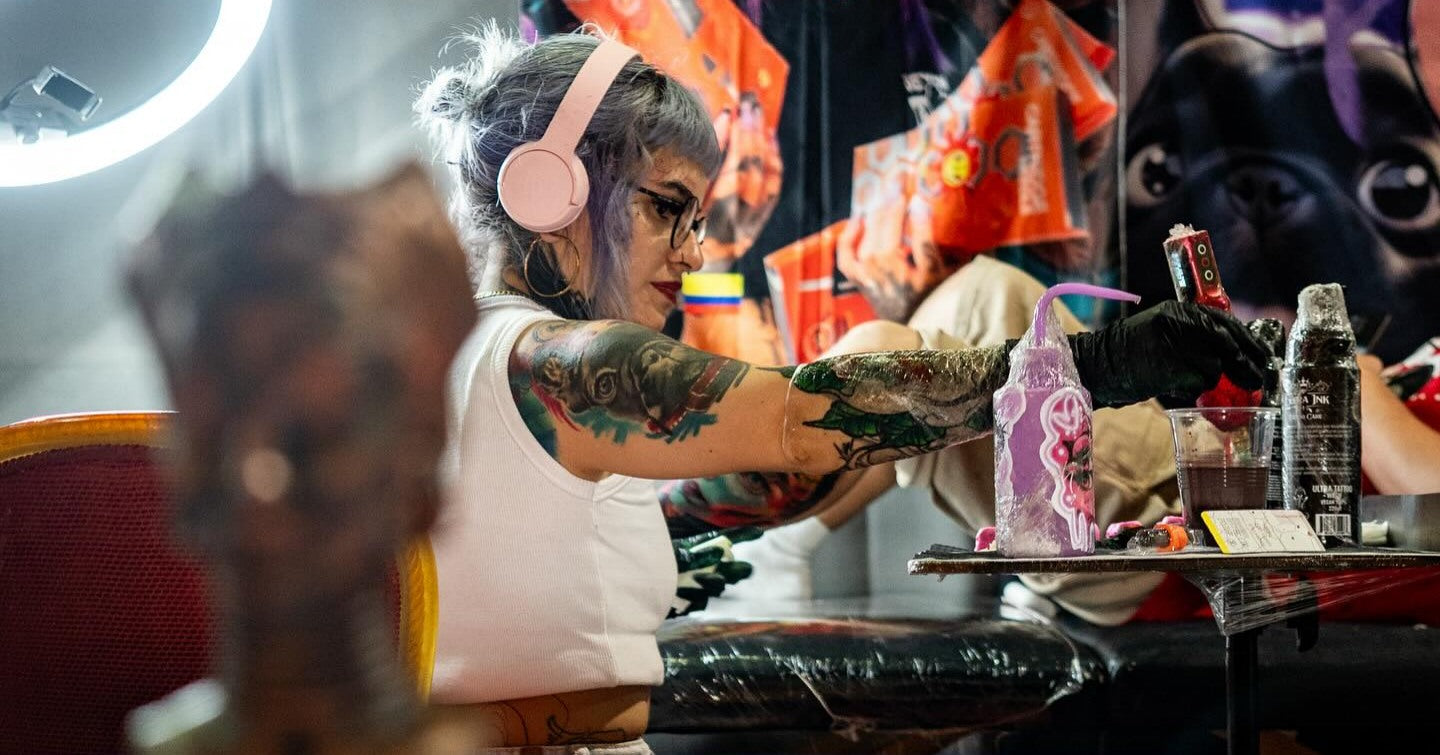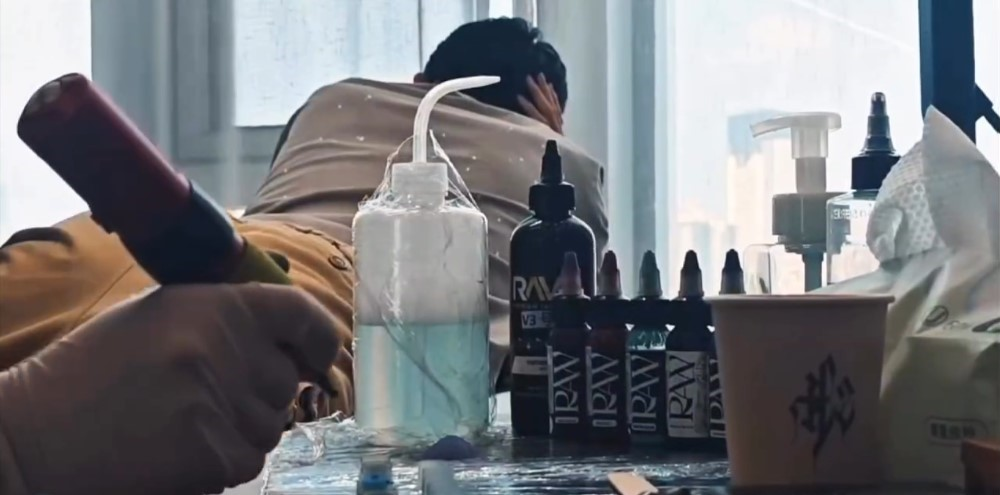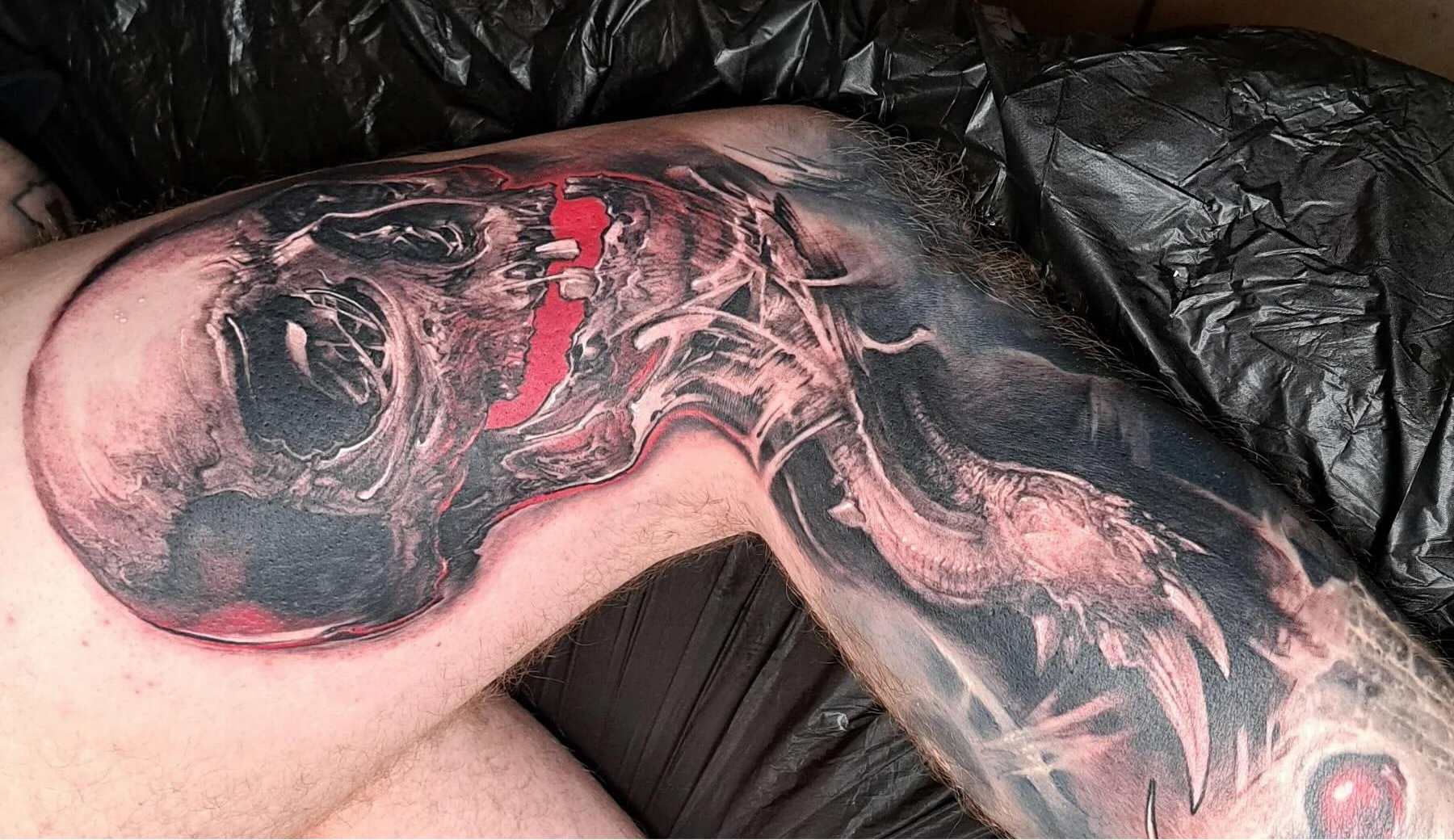
Finding the Right Voltage for Tattoo Liners — No Weak Lines, No Blowouts

When it comes to creating clean, crisp lines while tattooing, voltage is a point of concern. The appropriate voltage of a tattoo pen ensures not just the precision of your line work but also lessens the trauma to the skin and is therefore an important factor for amateurs and expert artists alike.
The Role of Voltage in Line Accuracy and Skin Damage
Voltage directly contributes to the speed and power of your tattoo machine. Higher voltage causes the motor to move faster, allowing the needle to go into the skin more rapidly. It can help with rapid motion and deeper penetration but can cause too much trauma if not controlled well. Lower voltage slows down the machine, which can reduce trauma but cause uneven lines or not depositing the ink.
Getting the proper balance is crucial. Constant voltage causes the needle to move at a constant rate, enabling proper line thickness and preventing erratic or broken lines.
Common Issues Caused by Incorrect Voltage
l Weak Lines from Low Voltage: Using too low a voltage can lead to underpowered strokes where the needle doesn’t penetrate deeply enough into the skin. This results in faint or patchy lines that fade quickly after healing.
l Blowouts from High Voltage: Conversely, high voltage can drive the needle too deep into the dermis, causing blowouts — where ink spreads beneath the skin’s surface — leading to blurry or distorted lines. This is especially problematic for delicate areas like wrists or ankles where skin is thinner.
Recommended Voltage Range for Tattoo Liners
Achieving a best tattoo pen voltage range prevents weak lines and blowouts while maintaining smooth operation on various machines and skin types.
General Voltage Guidelines for Lining: For most rotary tattoo machines, a good starting point for lining is at 6.0V and 9.0V. Some artists like to line in the range of 7.5V to 8.5V for simple line work, depending on their machine's ability and personal technique.
Factors That Influence Optimal Voltage
No single setting works universally; several variables affect what voltage will produce the best results.
l Needle Configuration and Size: Thicker needles or larger groupings require more power to drive them effectively into the skin. For example, using a 1011RL cartridge may demand slightly higher voltage than a 1003RL configuration due to increased resistance from multiple needles.
l Skin Type and Placement: Areas with tougher skin like backs or thighs may tolerate higher voltages better than sensitive areas like necks or inner arms. Adjusting your settings based on placement helps prevent trauma and ensures better ink retention.
l Tattoo Machine Type (Rotary vs. Coil): Rotary machines typically operate efficiently at lower voltages compared to coil machines. Wireless rotary pens from BRONC offer precise control, with many models allowing for adjustments in increments as fine as 0.1V, giving artists true mastery over every stroke.
Choosing the Right Tattoo Pen Voltage for Consistent Line Work
Understanding your machine’s capabilities is essential when adjusting tattoo pen voltage settings for consistent results. Each pen has its own optimal operating range depending on motor type, stroke length, and battery output. Advanced models like the BRONC X2 Adjustable Wireless Pen offer real-time monitoring of voltage and current through an ultra-clear IPS display, enabling seamless switching between lining tasks without interrupting workflow.
Featured Tattoo Machines for Optimal Lining Voltage
Choosing a reliable machine tailored for line work makes achieving clean results easier while minimizing trial-and-error adjustments.
BRONC V78 Professional Tattoo Pen

Key Features and Voltage Range: The BRONC V78 offers stable performance with adjustable stroke lengths suitable for both lining and shading applications across various skin types.
Ideal Use for Lining and Consistency: Its stable motor ensures consistent power output, which is crucial for maintaining a steady voltage during long sessions, with a recommended range of 6V–9V depending on needle configuration.
BRONC Rotary Cartridge Tattoo Machine

Performance and Voltage Compatibility: BRONC Rotary Cartridge Tattoo Machine Features CNC crafted aircraft aluminum body with anodized coating Swiss-made Maxon Motor with detachable motor bolt.
Working Voltage: 5~9 V DC for varied tasks.
BRONC Siren Adjustable Wireless Tattoo Pen

Wireless Control and Voltage Flexibility: With its adjustable stroke length of 2.6–4.0mm and a reliable 1800 mAh battery, this pen allows artists full freedom to fine-tune their preferred tattoo pen voltage without being tethered by cords.
Suitable Voltage Settings for Clean Lines: Ideal settings range from 4V–12V depending on needle size, making it versatile enough even for beginners learning how different voltages affect their line quality.
Tips to Avoid Common Lining Mistakes
Even with proper equipment setup, poor technique can compromise results if not addressed proactively.
l Maintaining Consistent Hand Speed and Voltage: Sudden changes in hand movement paired with fluctuating voltages often cause inconsistent depths leading to uneven lines or skipped areas—especially when working on curved surfaces or contours of the body.
l Ensure a Stable Power Supply: Regular maintenance, including checking cables and connections, prevents power fluctuations that can lead to inconsistent voltage and erratic machine performance.
l Practicing on Synthetic Skin Before Real Application: Before working on clients’ skin, test different configurations using synthetic practice skins which respond similarly under various voltages—allowing you to refine technique without risk.
BIGWASP — A Trusted Name in Tattoo Equipment
The BIGWASP has become synonymous with professional-grade tools trusted by seasoned artists worldwide thanks to a commitment toward innovation & safety standards in manufacturing processes.
Overview of the Product Lines
From high-performance cartridge needles featuring a leak-proof membrane for safety and a transparent design for visibility, to ergonomic wireless pens offering unmatched control—the brands deliver quality across all product categories suited for both lining & shading tasks alike.
Commitment to Quality and Artist Support
Each product undergoes rigorous quality checks ensuring reliability during critical procedures while providing responsive customer service. All products are available via the official website where you can also verify authenticity before purchasing.
FAQs:
Q1: What is the ideal voltage range for lining with a rotary tattoo pen?
A: For most rotary tattoo pens used specifically for lining work, an ideal starting range is between 6V–9V, depending on factors like stroke length, motor power, needle grouping size, and user technique preferences.
Q2: Can using too low voltage cause damage to the skin?
A: Yes—while low voltage reduces mechanical force—it can still cause damage if multiple passes are required due to insufficient ink saturation; this leads to overworking small areas which increases healing time & scarring risk over time.
Q3: Are wireless tattoo pens reliable for voltage control?
A: Absolutely! Latest wireless models like the BRONC X2 Adjustable Wireless Pen offer live monitoring screens & minute adjustments to 0.1V, giving users complete control even for detailed lining work.



اترك تعليقًا
This site is protected by hCaptcha and the hCaptcha Privacy Policy and Terms of Service apply.